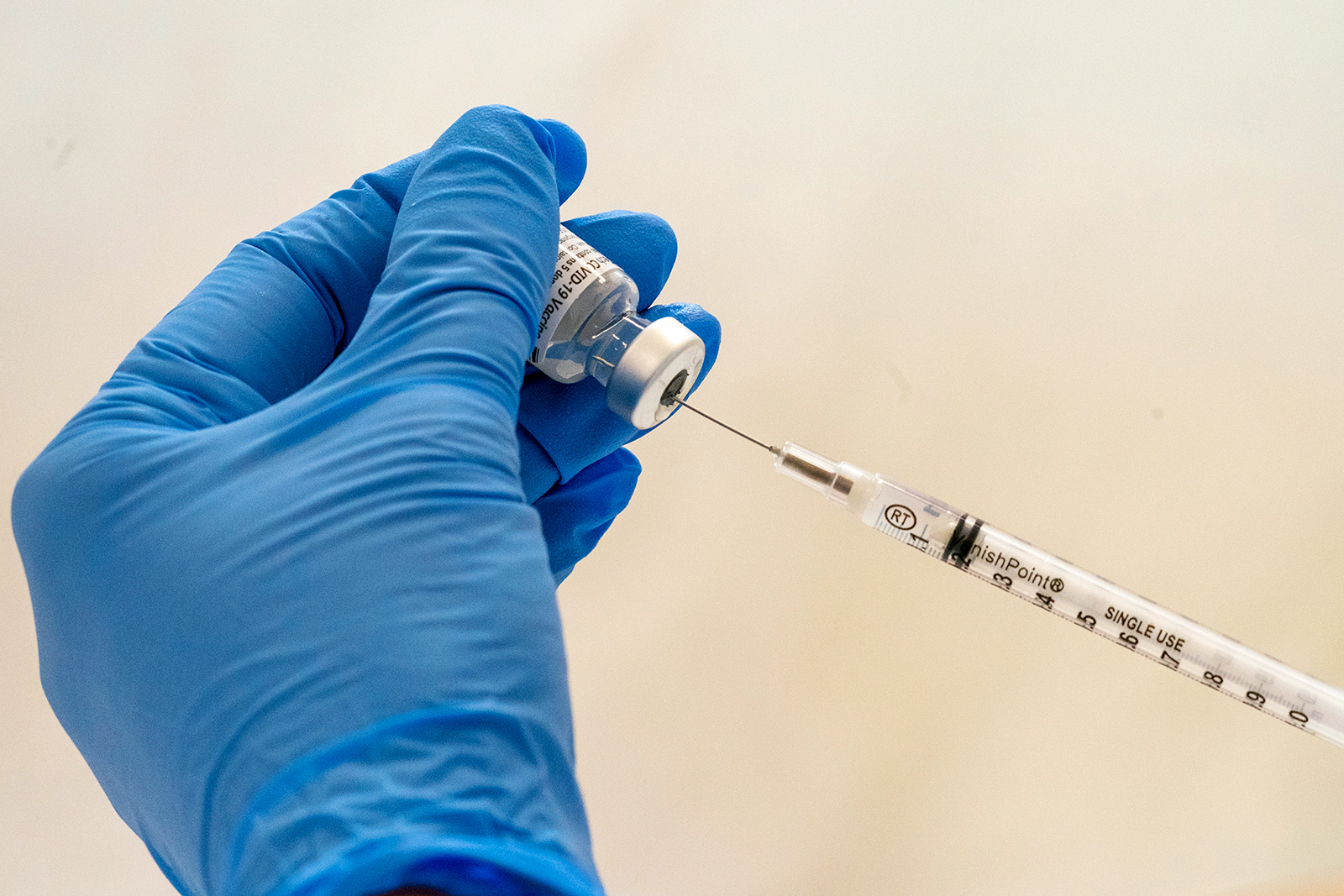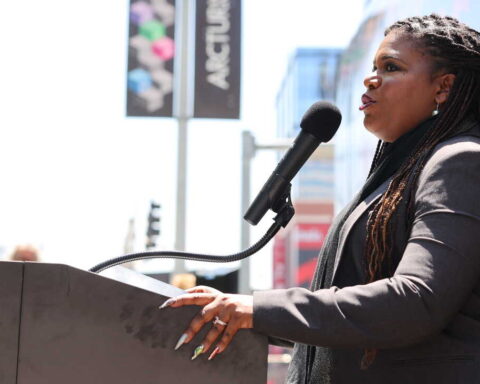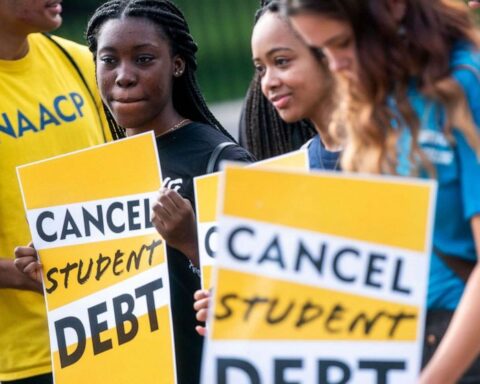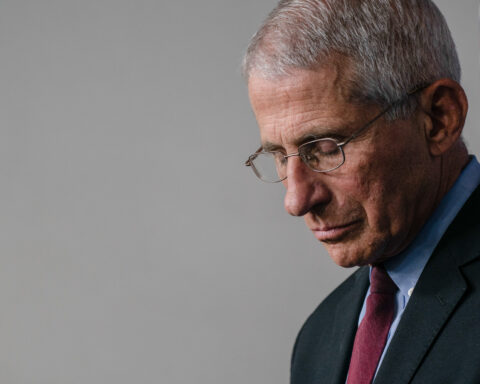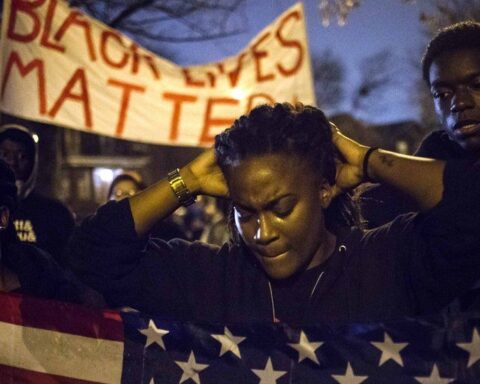Covid-19 has disproportionately devastated the Black community. Black Americans are dying from the coronavirus at nearly twice the rate of White Americans — and have been hospitalized nearly three times as often, according to data from the US Centers for Disease Control and Prevention. Black Americans, who make up a disproportionate share of essential workers, are also shouldering greater socioeconomic burdens during the pandemic. You would think that one way to bring back a measure of racial justice would be to work vigorously to eliminate this disparity when it comes to who can get the vaccine.
Think again.
In a nation where the rollout is only highlighting long-standing racial inequities, President Joe Biden has promised Black and brown people equal access to the vaccine. But even in Biden’s home state of Delaware, where Black Americans make up 24% of Covid-19 cases, as of Friday, they accounted for only 9% of vaccinations. This pattern is widespread: Black Americans are being vaccinated at rates far lower than their share of the population.
There are many reasons for this. Modern technology might be one major culprit since vaccination appointments are often booked online. Black households tend to have less access to computers and the internet compared with White households. Even though smartphones have largely bridged the digital divide, studies show that users pay more attention to news on desktops than on their phones and are more susceptible to misinformation when they use mobile devices exclusively.
For a particularly stark example of how this digital divide affects the vaccine rollout, consider the poorest ZIP code in Shelby County, Tennessee, where 96% of residents are Black and 70% of households do not have internet access, according to census data. When the county first launched its vaccine rollout, all available appointments were snapped up online before a designated hotline was even available, according to a ProPublica report. That left people who did not have internet access and could only register for an appointment via phone at a measurable disadvantage.
More than half of Black adults in the US remain hesitant about getting the Covid-19 vaccine, according to a survey released earlier this month by the National Foundation for Infectious Diseases. Many have attributed this to the US history of racism in medicine and the legacy of unethical research like the Tuskegee Syphilis Study.
The digital divide only exacerbates the issue of equitable access to public health.
The first step to fixing this inequity is acknowledging that Covid-19 is more than a public health crisis and an economic crisis. It is also an information crisis. People need reliable information, free of rumors and untruths. They need to know their own exposure risks, infection status and how to register for vaccinations. The authorities need data on individuals’ risk and exposure profiles and to match them up with vaccine supplies. Whether it’s inadequate testing, confusing local restrictions or misinformation on social media, we are battling Covid-19 in an information fog.
Cutting through the fog requires a multiprong approach involving local and community leaders and organizers, health officials, tech companies and the US government:
- Borrow a page or two from the playbook to increase voter turnout, which was recently successful in reaching Black communities across Georgia. Use tested strategies including personalized messaging, door-knocking and community initiatives. Get local community and business leaders to take charge of vaccination drives, while Get Out the Vote volunteers are redeployed to reach people on the ground. Use phone banks, local media, TV, newspapers and social media to educate and build trust. Add testimonials from community, faith leaders and neighbors and make signing up easy.
- Expand vaccination centers beyond pharmacies and large health care centers: Poorer, predominantly Black, neighborhoods are home to far too many “pharmacy deserts” and have experienced hospital closures in recent years. Mass vaccinations in football stadiums are efficient but stadiums are often situated too far away from population centers to be accessible. Instead, vaccination teams must be established in Black neighborhoods in places of worship, schools, community centers, mobile units and even in fast food restaurant and retailer parking lots.
- Make use of smartphones that are available even in households without computers and internet access. Public health officials could launch campaigns via text messages or social media platforms to build awareness and trust in vaccines among younger, more digitally connected members of the Black community, who can help mobilize their older or higher-risk neighbors.
- Lean on America’s much vaunted tech industry. Google already has access to tens of millions of medical records in a majority of states, according to The Wall Street Journal. This is an asset for alerting high-risk populations without necessarily violating privacy laws. Amazon can be key to the logistics, storage and delivery of vaccine supplies while Facebook and other social media platforms can do more to root out vaccine misinformation. Facebook has been used to great effect to spread misinformation targeting Black and Latinx communities; the same targeting machinery, used legitimately, can be deployed to share accurate information about vaccine safety and sign-ups. What’s the incentive? The government has plenty of leverage over Big Tech with an antitrust bill and lawsuits hanging over the industry, and the companies are eager to prove their public good. If deployed with integrity and oversight, these distinctive capabilities could potentially save lives. The good news is that this does not call for a cold start. Google, Amazon and Facebook are already helping with the vaccine effort or have offered their help. But they can do much more and their technologies allow them to ramp up fast.
This is Black History Month — a time when we reflect on racial injustices from decades and centuries past. The Covid-19 pandemic has already added to that legacy of racial injustice. There is an opportunity to finally start getting things right.
